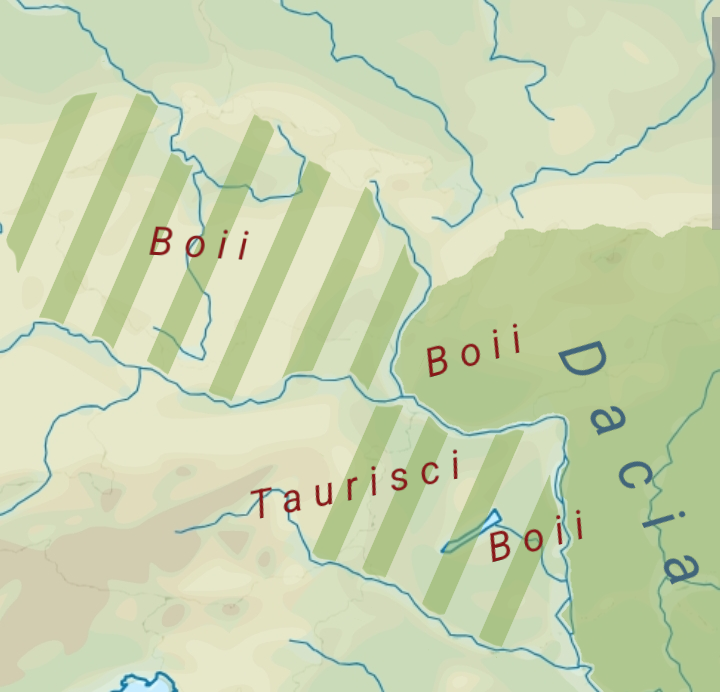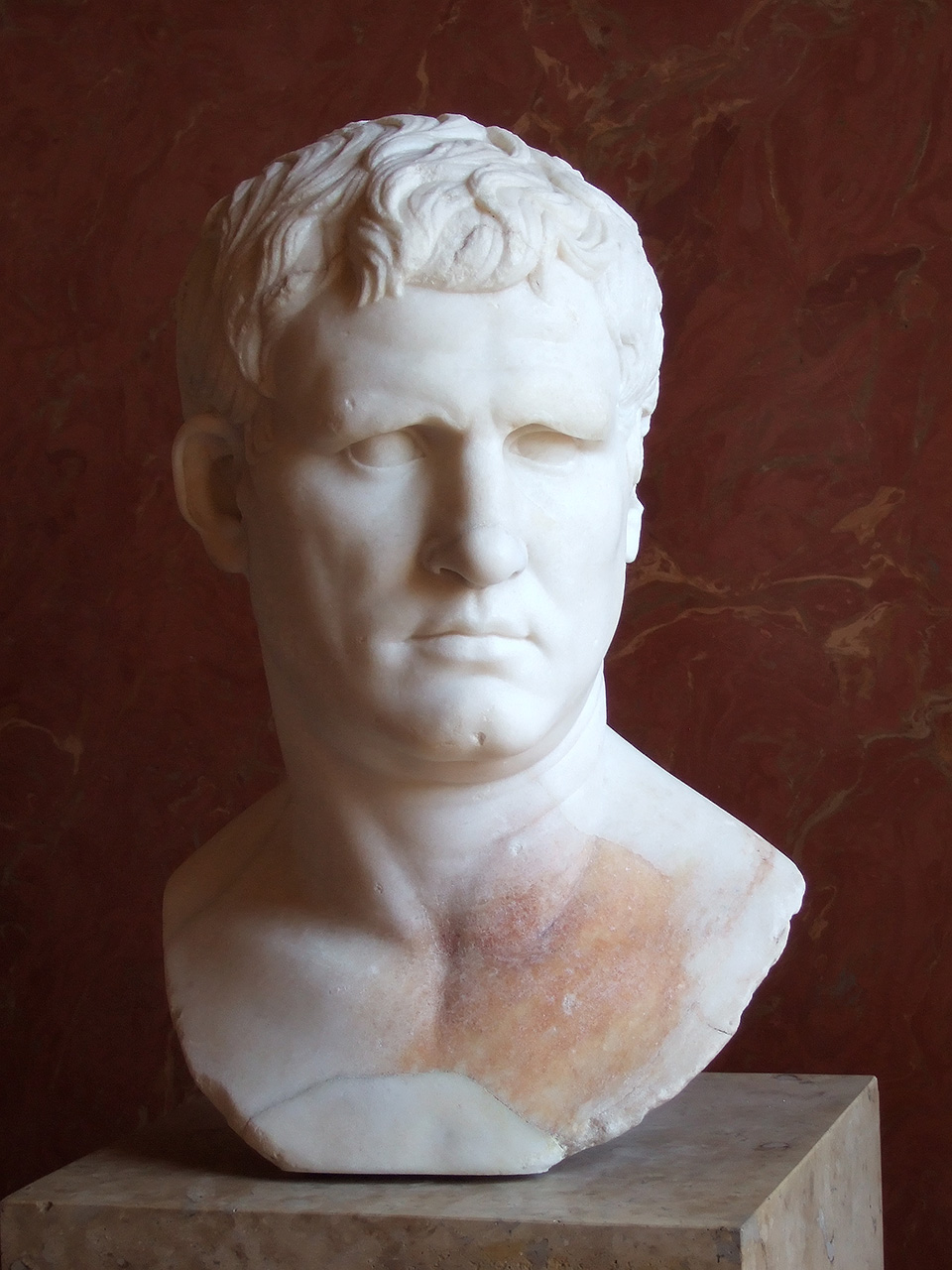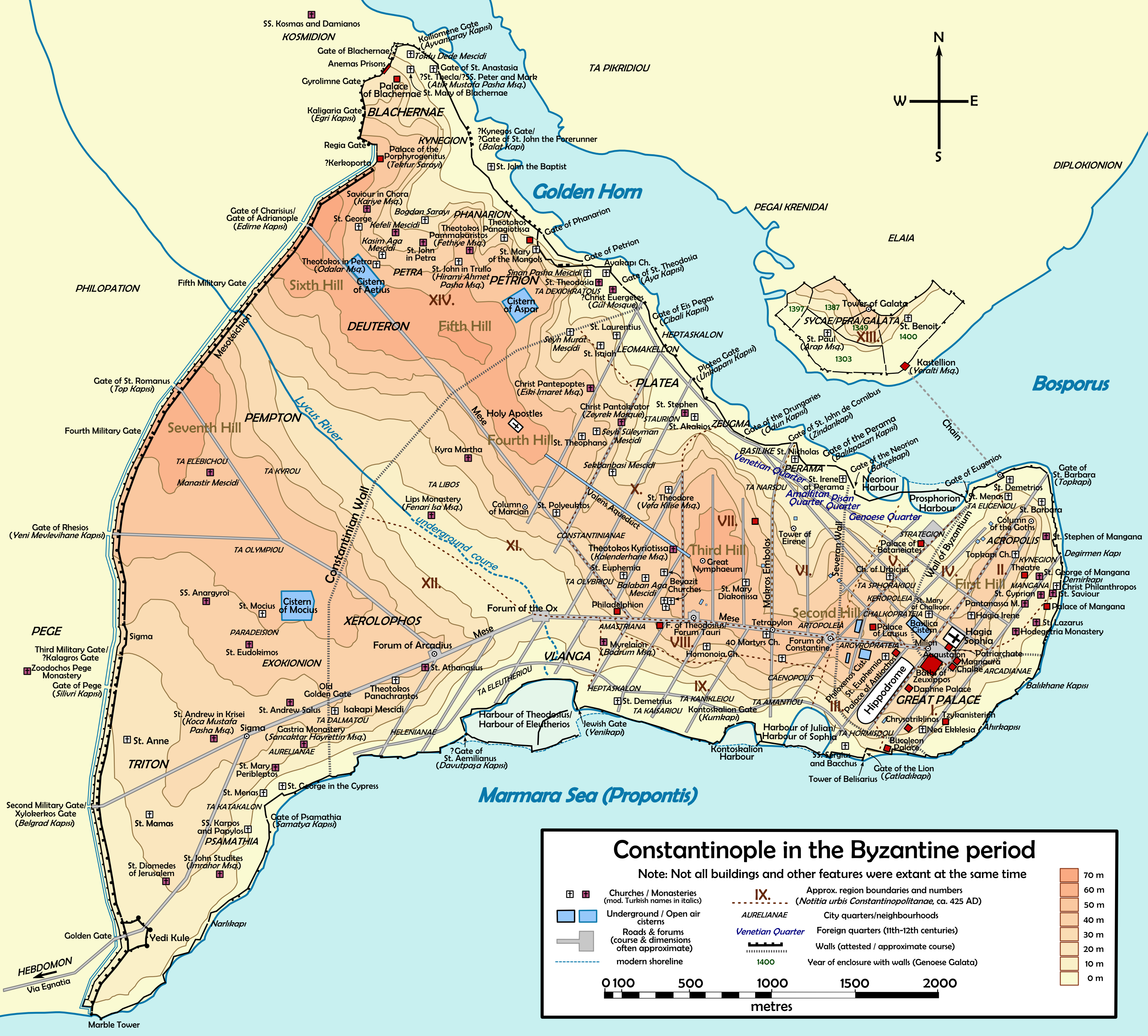|
Tiberius Julius Caesar Augustus
Tiberius Julius Caesar Augustus ( ; 16 November 42 BC – 16 March AD 37) was Roman emperor from AD 14 until 37. He succeeded his stepfather Augustus, the first Roman emperor. Tiberius was born in Rome in 42 BC to Roman politician Tiberius Claudius Nero and his wife, Livia Drusilla. In 38 BC, Tiberius's mother divorced his father and married Augustus. Following the untimely deaths of Augustus's two grandsons and adopted heirs, Gaius and Lucius Caesar, Tiberius was designated Augustus's successor. Prior to this, Tiberius had proved himself an able diplomat and one of the most successful Roman generals: his conquests of Pannonia, Dalmatia, Raetia, and (temporarily) parts of Germania laid the foundations for the empire's northern frontier. Early in his career, Tiberius was happily married to Vipsania, daughter of Augustus's friend, distinguished general and intended heir, Marcus Vipsanius Agrippa. They had a son, Drusus Julius Caesar. After Agrippa died, Augustus insisted tha ... [...More Info...] [...Related Items...] OR: [Wikipedia] [Google] [Baidu] |
Princeps
''Princeps'' (plural: ''Principes'') is a Latin word meaning "first in time or order; the first, foremost, chief, the most eminent, distinguished, or noble; the first person". As a title, ''Princeps'' originated in the Roman Republic wherein the leading member of the Senate was designated ''princeps senatus''. It is primarily associated with the Roman emperors as an unofficial title first adopted by Augustus () in 27 BC. Its use in this context continued until the regime of Diocletian (r. 284 – 305 AD) at the end of the third century. He preferred the title of ''dominus'', meaning "lord" or "master". As a result, the Roman Empire from Augustus to Diocletian is termed the "principate" (''principatus''). Other historians define the reign of Augustus to Severus Alexander (r. 222 – 235) as the Principate, and the period afterwards as the "Autocracy". The medieval title Prince#Prince_as_generic_for_ruler, "Prince" is a derivative of princeps, as is the title Principal (disambiguati ... [...More Info...] [...Related Items...] OR: [Wikipedia] [Google] [Baidu] |
Julio-Claudian
The Julio-Claudian dynasty comprised the first five Roman emperors: Augustus, Tiberius, Caligula, Claudius, and Nero. This line of emperors ruled the Roman Empire, from its formation (under Augustus, in 27 BC) until the last of the line, Emperor Nero, committed suicide (in AD 68). The name ''Julio-Claudian'' is a historiographical term, deriving from the two families composing the imperial dynasty: the Julii Caesares and Claudii Nerones. Nomenclature '' Julius'' and ''Claudius'' were two Roman family names; in classical Latin, they came second. Roman family names were inherited from father to son, but a Roman aristocrat could—either during his life or in his will—adopt an heir if he lacked a natural son. In accordance with Roman naming conventions, the adopted son would replace his original family name with the name of his adopted family. A famous example of this custom is Julius Caesar's adoption of his great-nephew, Gaius Octavius. Primogeniture is notably absent i ... [...More Info...] [...Related Items...] OR: [Wikipedia] [Google] [Baidu] |
Dalmatia (Roman Province)
Dalmatia was a Roman province. Its name is derived from the name of an Illyrian tribe called the Dalmatae, which lived in the central area of the eastern coast of the Adriatic Sea. It encompassed the northern part of present-day Albania, much of Croatia, Bosnia and Herzegovina, Montenegro, and Serbia, thus covering an area significantly larger than the current Croatian and Montenegrin region of Dalmatia. Originally this region was called Illyria (in Greek) or Illyricum (in Latin). The province of Illyricum was dissolved and replaced by two separate provinces: Dalmatia and Pannonia. Conquest The region which ran along the coast of the Adriatic Sea and extended inland on the Dinaric Alps was called Illyria by the Greeks. Originally, the Romans also called the area Illyria and later, Illyricum. The Romans fought three Illyrian Wars (229 BC, 219/8 BC and 168 BC) mainly against the kingdom of the Ardiaei to the south of the region. In 168 BC, they abolished this kingdom and di ... [...More Info...] [...Related Items...] OR: [Wikipedia] [Google] [Baidu] |
Pannonia
Pannonia (, ) was a Roman province, province of the Roman Empire bounded on the north and east by the Danube, on the west by Noricum and upper Roman Italy, Italy, and on the southward by Dalmatia (Roman province), Dalmatia and upper Moesia. It included the modern regions western Hungary, western Slovakia, eastern Austria, northern Croatia, north-western Serbia, northern Slovenia, and northern Bosnia and Herzegovina. Background In the Early Iron Age, Transdanubia was inhabited by the Pannonians or Pannonii, a collection of Illyrians, Illyrian tribes. The Celts invaded in the Late Iron Age and Gallo-Roman culture, Gallo-Roman historian Pompeius Trogus writes that the Celts were met with heavy resistance from the locals and were not able to overrun the southern part of Transdanubia. Some tribes advanced as far as Delphi, with the Scordisci settling in Syrmia (279 BC) upon being forced to withdraw. The arrival of the Celts in Transdanubia disrupted the flow of amber from the Balti ... [...More Info...] [...Related Items...] OR: [Wikipedia] [Google] [Baidu] |
Roman General
Roman or Romans most often refers to: *Rome, the capital city of Italy *Ancient Rome, Roman civilization from 8th century BC to 5th century AD *Roman people, the people of Roman civilization *Epistle to the Romans, shortened to Romans, a letter written by Paul, found in the New Testament of the Christian Bible * Ar-Rum (), the 30th sura of the Quran. Roman or Romans may also refer to: Arts and entertainment Music * Romans (band), a Japanese pop group * ''Roman'' (album), by Sound Horizon, 2006 * ''Roman'' (EP), by Teen Top, 2011 *" Roman (My Dear Boy)", a 2004 single by Morning Musume Film and television * Film Roman, an American animation studio * ''Roman'' (film), a 2006 American suspense-horror film * ''Romans'' (2013 film), an Indian Malayalam comedy film * ''Romans'' (2017 film), a British drama film * ''The Romans'' (''Doctor Who''), a serial in British TV series People * Roman (given name), a given name, including a list of people and fictional characters * Roman (surna ... [...More Info...] [...Related Items...] OR: [Wikipedia] [Google] [Baidu] |
Lucius Caesar
Lucius Caesar (17 BC – 20 August 2 AD) was a grandson of Augustus, the first Roman emperor. The son of Marcus Vipsanius Agrippa and Julia the Elder, Augustus' only daughter, Lucius was adopted by his grandfather along with his older brother, Gaius Caesar. As the emperor's adopted sons and joint-heirs to the Roman Empire, Lucius and Gaius had promising political and military careers. However, Lucius died of a sudden illness on 20 August 2 AD, in Marseille, Massilia, Roman Gaul, Gaul, while traveling to meet the Roman army in Hispania. His brother Gaius also died at a relatively young age on 21 February 4 AD. The untimely loss of both heirs compelled Augustus to redraw the line of succession by adopting Lucius' younger brother, Agrippa Postumus as well as his stepson, Tiberius on 26 June 4 AD. Background Lucius' father Marcus Vipsanius Agrippa was an early supporter of Augustus (then "Octavius") during the Final War of the Roman Republic that ensued as a result of the assassinati ... [...More Info...] [...Related Items...] OR: [Wikipedia] [Google] [Baidu] |
Gaius Caesar
Gaius Caesar (20 BC – 21 February 4 AD) was a grandson and heir to the throne of Roman emperor Augustus, alongside his younger brother Lucius Caesar. Although he was born to Marcus Vipsanius Agrippa and Julia the Elder, Julia, Augustus' only daughter, Gaius and Lucius were raised by their grandfather as his adopted sons and joint-heirs. He experienced an accelerated political career befitting a member of the Julio-Claudian dynasty, with the Roman Senate allowing him to advance his career without first holding a quaestorship or praetorship, offices that ordinary senators were required to hold as part of the ''cursus honorum''. In 1 BC, Gaius was given command of the eastern provinces, after which he concluded a peace treaty with King Phraates V of Parthia, Phraates V of Parthia on an island in the Euphrates. Shortly afterwards, he was appointed to the office of Roman consul, consul for the following year, 1 AD. The year after Gaius' consulship, Lucius died at Marseille, Massil ... [...More Info...] [...Related Items...] OR: [Wikipedia] [Google] [Baidu] |
Livia Drusilla
Livia Drusilla (30 January 59 BC AD 29) was Roman empress from 27 BC to AD 14 as the wife of Augustus, the first Roman emperor. She was known as Julia Augusta after her formal adoption into the Julia ''gens'' in AD 14. Livia was the daughter of senator Marcus Livius Drusus Claudianus and his wife Alfidia. She married Tiberius Claudius Nero around 43 BC, and they had two sons, Tiberius and Drusus. In 38 BC, she divorced Tiberius Claudius Nero and married the political leader Octavian. The Senate granted Octavian the title ''Augustus'' in 27 BC, effectively making him emperor. In her role as Roman empress, Livia served as an influential confidant to her husband and was rumored to have been responsible for the deaths of several of his relatives, including his grandson Agrippa Postumus. After Augustus died in AD 14, Tiberius was elevated, and Livia continued to exert political influence as the mother of the emperor until her deat ... [...More Info...] [...Related Items...] OR: [Wikipedia] [Google] [Baidu] |
Tiberius III
Tiberius III (), born Apsimar (; ), was Byzantine emperor from 698 to 705. Little is known about his early life, other than that he was a , a mid-level commander, who served in the Cibyrrhaeot Theme. In 696, Tiberius was part of an army sent by Byzantine Emperor Leontius to retake the North African city of Carthage, which had been captured by the Arab Umayyads. After seizing the city, this army was pushed back by Umayyad reinforcements and retreated to the island of Crete. As they feared the wrath of Leontius, some officers killed their commander, John the Patrician, and declared Tiberius the emperor. Tiberius swiftly gathered a fleet and sailed for Constantinople, where he then deposed Leontius. Tiberius did not attempt to retake Byzantine Africa from the Umayyads, but campaigned against them along the eastern border with some success. In 705, former emperor Justinian II, who had been deposed by Leontius, led an army of Slavs and Bulgars from the First Bulgarian Empire to C ... [...More Info...] [...Related Items...] OR: [Wikipedia] [Google] [Baidu] |
Tiberius II Constantine
Tiberius II Constantine (; ; died 14 August 582) was Eastern Roman emperor from 574 to 582. Tiberius rose to power in 574 when Justin II, prior to a mental breakdown, proclaimed him ''caesar'' and adopted him as his own son. In 578, the dying Justin II gave him the title of ''augustus'', thus becoming co-emperor alongside him. Tiberius became sole ruler less than two weeks later, assuming the regnal name of "Constantine" under which he reigned until his death. Early career Born in Thrace in the mid-6th century, Tiberius was appointed to the post of notarius. There, sometime after 552, he was introduced by the Patriarch Eutychius to the future emperor, Justin II, with whom he became firm friends. Under Justin's patronage, Tiberius was promoted to the position of '' Comes excubitorum'', which he held from approximately 565 through to 574. He was present during Justin's imperial accession on 14 November 565 and also attended his inauguration as consul on 1 January 566. Just ... [...More Info...] [...Related Items...] OR: [Wikipedia] [Google] [Baidu] |
Byzantine Empire
The Byzantine Empire, also known as the Eastern Roman Empire, was the continuation of the Roman Empire centred on Constantinople during late antiquity and the Middle Ages. Having survived History of the Roman Empire, the events that caused the fall of the Western Roman Empire in the 5th centuryAD, it endured until the fall of Constantinople to the Ottoman Empire in 1453. The term 'Byzantine Empire' was coined only after its demise; its citizens used the term 'Roman Empire' and called themselves 'Romans'. During the early centuries of the Roman Empire, the western provinces were Romanization (cultural), Latinised, but the eastern parts kept their Hellenistic culture. Constantine the Great, Constantine I () legalised Christianity and moved the capital to Constantinople. Theodosius I, Theodosius I () made Christianity the state religion and Greek gradually replaced Latin for official use. The empire adopted a defensive strategy and, throughout its remaining history, expe ... [...More Info...] [...Related Items...] OR: [Wikipedia] [Google] [Baidu] |
Great Cameo Of France
The Great Cameo of France () is a five-layered sardonyx Imperial Roman cameo of either about 23 AD, or 50–54 AD. It is 31 cm by 26.5 cm. It is now in the Bibliothèque Nationale in Paris. It is the largest Roman imperial cameo to have survived. It would have been an object of great value and prestige, almost certainly made for a member of the ruling Julio-Claudian dynasty. It is carved with twenty-four figures, divided into three levels. The identity of some figures, and the meaning and iconographic intent of the work have been much debated, but it is clear that the piece is intended to assert the continuity and dynastic legitimacy of the Julio-Claudian dynasty. Iconography The interpretation of the family group alters with the date given to the gem. In the upper level are its deceased or deified members including Divus Augustus. The surrounding figures may be Drusus the Younger (son of Tiberius), and Drusus the Elder (brother of Tiberius) flying on Pegasus. ... [...More Info...] [...Related Items...] OR: [Wikipedia] [Google] [Baidu] |








